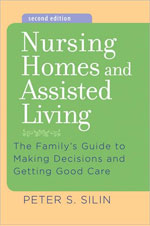Re: Prescriptions for those 80 and older are 5 times norm
Below is a copy of an email I sent to the Vancouver Sun letters page, following their article on Seniors and medication use:
To the Editor:
The issue of medications and Seniors is greater than just the number who are hospitalized due to adverse reactions from multiple medications. For one, complicated medication regimes make it less likely that medications will be taken as prescribed . This is especially true for Seniors who have some cognitive impairment. They miss doses or take too many, leading to toxicity, delirium, falls, and other dangers. Many older people will cut down on medications because of the costs, they do not know about Fair Pharma-care or that they can ask for generic equivalents. Sometimes people do not understand why they are taking medications and so will stop, or stop when they feel better. Also, people will take supplements, vitamins, or other over the counter medications and not tell their physicians; not realizing that their can be serious interactions with the prescribed medications. Some things that can help:
1. Always review with a pharmacist all medications being taken and diagnoses.
2. Always ask about, and be aware of potential side effects.
3. Keep a list of medications and diagnoses, bring it when you go to a specialist, and make sure your family doctor knows about all medications you have been prescribed.
4.. If someone is having trouble remembering to take pills, medications can be bubble packed and labeled. There are also medication dispensing machines, some with verbal reminders to take medications.
5. Family members should monitor that medications are being taken correctly by reviewing with elderly relatives and actually looking at the medications.
6. There are several online websites that can be used so that consumers can see for themselves potential side effects.
7. If there are concerns about memory impairment and home functioning, have an assessment. Talk to your local health authority, hire a professional Care Manager or home support help who can help people manage at home.
Peter Silin, MSW, RSW
Labels: seniors and medication



